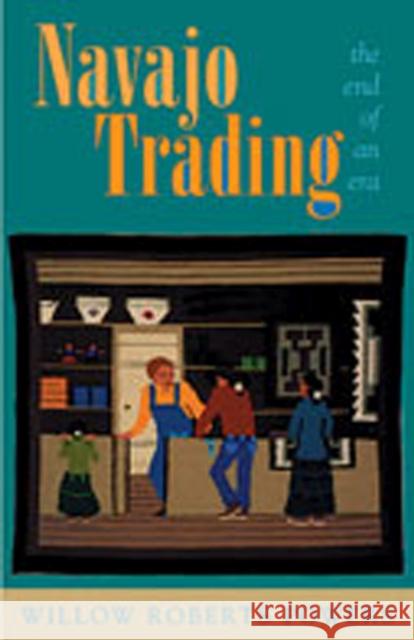Navajo Trading the End of an Era » książka
Navajo Trading the End of an Era
ISBN-13: 9780826323224 / Angielski / Miękka / 2002 / 296 str.
Beginning in the 1870s peddlers began to travel by wagon onto the Navajo Reservation to barter their wares for wool, a few sheep, a rug, or a piece of silver jewelry. By the early years of the twentieth century, barter developed into an exchange of culture and services: in addition to serving as a place where Navajo jewelry and rugs changed hands, trading posts acted as grocery stores, banks, post offices, and railroad hiring offices. Traders were the link between Anglo-American culture and the Navajo people. At first agents of change, by 1950 they had become maintainers of tradition and hence obstacles to modernization. Today, at the dawn of the twenty-first century, trading posts are obsolete.This overview of Navajo trading is the first to examine trading in the last quarter of the twentieth century, when changes in both cultures led to the investigation of trading practices by the Federal Trade Commission, ultimately resulting in the demise of most traditional trading posts. Based on archival research and on interviews with traders, Navajos, and lawyers who worked for the Navajo tribe, this fair-minded narrative includes eloquent testimony from many interested parties. Powers writes about the difficulties and the delights of the life of a trader and shows the ethical and political reasons for the FTC hearings as well as the differences between good and bad traders. Anyone interested in modern Navajo life will enjoy this lively book.











